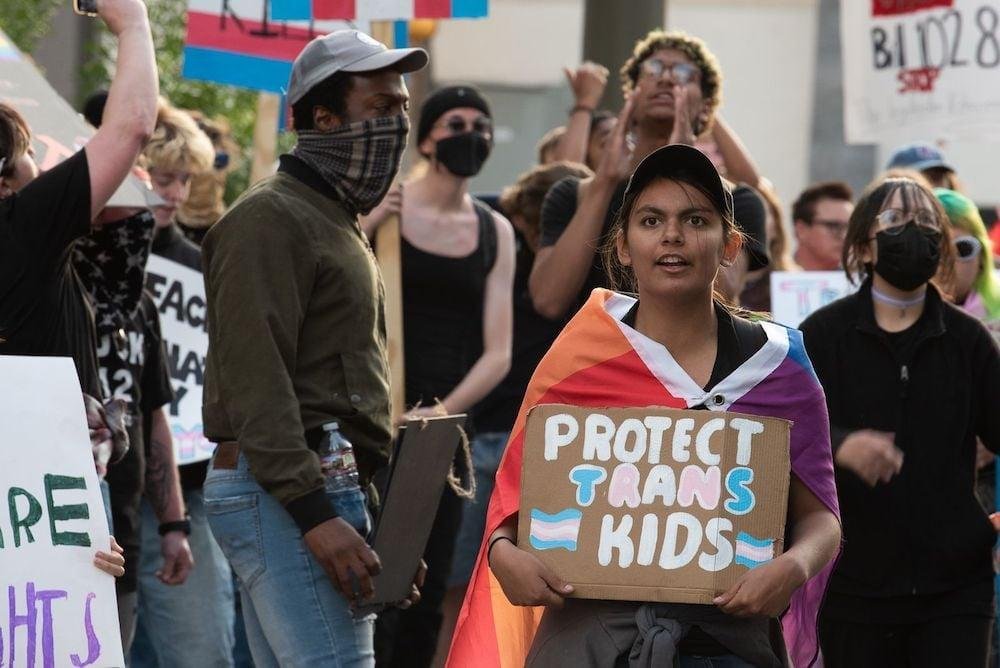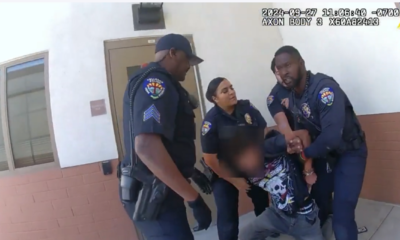Education
After Republican Wins, Arizona GOP Revives Controversial Anti-Trans Student Bills

Arizona’s transgender youth face renewed legislative challenges as Republican lawmakers introduce new bills aimed at restricting the use of preferred pronouns and regulating access to school facilities based on biological sex. These measures emerge with the backing of a reinforced GOP majority following November’s elections, signaling a continued focus on cultural issues within the party.
The first bills aimed at the 2025 session include one that requires teachers to obtain written parental consent before using a student’s preferred name or pronoun. Despite this requirement, the bill allows school staff to ignore a student’s identity if they have any “religious or moral” objections. Another bill prohibits transgender students from using locker rooms and bathrooms that align with their gender identity, thus paving the way for potential lawsuits from students who claim emotional or physical harm.
State Senator John Kavanagh, the driving force behind these proposals, is no stranger to attempts at legislation that limits the rights of transgender individuals. His past initiatives to restrict access to public facilities have stalled, but the recent shift in political dynamics has emboldened him and his Republican colleagues. Governor Katie Hobbs has previously vetoed similar bills, emphasizing her commitment to blocking anti-LGBTQ legislation.
Kavanagh believes recent electoral results favor his agenda. “The Democrats were given a fairly strong rebuke by the public on a number of issues,” he stated, suggesting the outcome was a mandate for advancing conservative positions. Following the election, the Republicans gained additional seats in the state legislature, which they interpret as support for their initiatives on cultural matters.
Despite Kavanagh’s claims, some advocates contest the narrative that political victories correlate with public endorsement of restrictive trans policies. Jeanne Woodbury, a trans advocate, argues that the political landscape does not reflect voter support for anti-trans measures. Instead, she suggests a focus on other pressing issues, such as the economy and immigration, influenced recent election outcomes.
Polling data indicates that while many Americans express support for transgender rights, there is a significant division on specific issues such as bathroom access and participation in women’s sports. A recent survey revealed that a majority of Arizonans oppose allowing transgender individuals to use facilities aligned with their gender identity. This context has led to a precarious environment for trans youths in schools.
As the national stage also shifts under a potential new administration, fears mount regarding federal protections for transgender students. Former President Trump has pledged to reverse protections enacted under the Biden administration, which would further complicate efforts to safeguard the rights of transgender individuals.
Kavanagh’s proposals face potential legal hurdles, particularly concerning Title IX protections. However, he remains optimistic, stating that the political landscape has shifted in favor of his ideas. “In the end, the voters will get to decide if the governor vetoes this,” he remarked, confident that his initiatives might find more significant traction in forthcoming legislative sessions.
The ongoing battle over transgender rights in Arizona reflects broader national trends, with repercussions that extend beyond legislation, potentially creating long-term impacts on societal attitudes toward the transgender community.

















